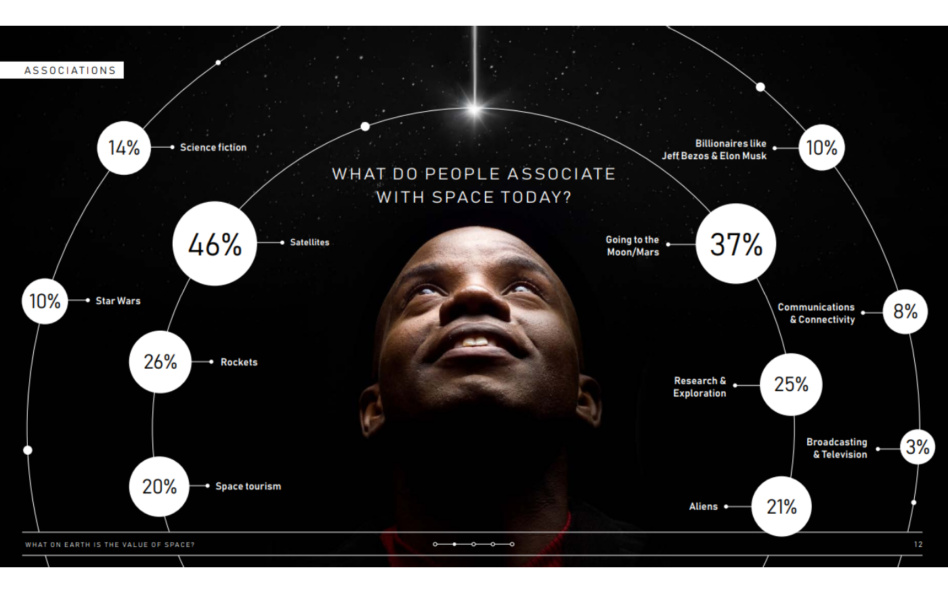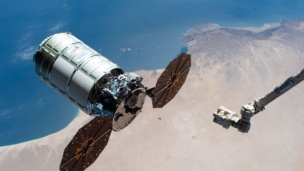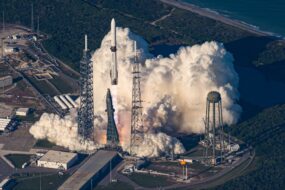Houston, we have an image problem.
Yesterday, Inmarsat released a massive report on the public perception of the space industry. The survey of 20,000 people across 11 countries showed, by and large, a lack of faith in the space industry to solve problems down on Earth or to benefit humanity.
The spectacle of it all: While 46% of people surveyed associate space with satellites and 37% link it with going to the Moon and Mars, results hinted that pop culture still dominates the popular view of space more than practical applications.
- 21% of respondents associate space with aliens, 14% with sci-fi, and 10% with Star Wars.
- Respondents between 18 and 34 were twice as likely to make the alien association as respondents over 55. Baby Boomers were much more likely than younger generations to mention satellites, research, or exploration.
- As for some of the most important Earthly applications of space tech—communications & connectivity and broadcasting & television—only 8% and 3% of people, respectively, made those associations.
Meanwhile, the antics of certain space-involved billionaires may not be dominating the global conversation around space quite as much as thought. 10% of respondents made the space association to “billionaires like Jeff Bezos and Elon Musk.” On a related note, 69% of respondents said they had heard of SpaceX—but only 35% said they knew what it does.
Who knows? Inmarsat’s pollsters asked respondents what space tech they had heard a thing or two about. 50% of respondents claimed to know about space exploration, and 46% about satellite communications.
Space-based internet and in-space manufacturing came in at the bottom of the list, with 35% and 43% of respondents, respectively, saying they’d heard of these new-er applications. That switched when they were asked whether they know “a lot” about these topics—11% considered themselves space-based broadband internet experts. 7% claimed the same about in-space manufacturing.
- We don’t want to editorialize too much here…but it’s hard to believe 7% of the general population in 11 countries know “a lot” about in-space manufacturing. Just our 2¢.
Hopes for the space domain: Respondents in different countries had wildly disparate answers to the question of how space is best suited to benefit life on Earth.
- 40% of respondents from South Korea said it is beneficial to conduct scientific research in space. Only 4% of UK respondents said the same.
- Generally, respondents said they hoped that space could help Earthlings monitor and solve climate change and to discover new sources of energy.
- People had far less optimism about space’s ability to alleviate poverty on Earth or to support cancer research.
Who needs it? Across the board, only 23% of respondents view space as important. A majority of people believed that the aviation, TV and broadcasting, IT, and defense industries could not function without space infrastructure. The industries they think *could* survive without it? Retail, mining and construction, agriculture and farming, supply chain and logistics, and shipping.
The bottom line: Space may have a PR issue. As the report’s authors put it, “people across the world are largely unaware of the true value of space: neither its current significance nor the value it holds for future generations.”




